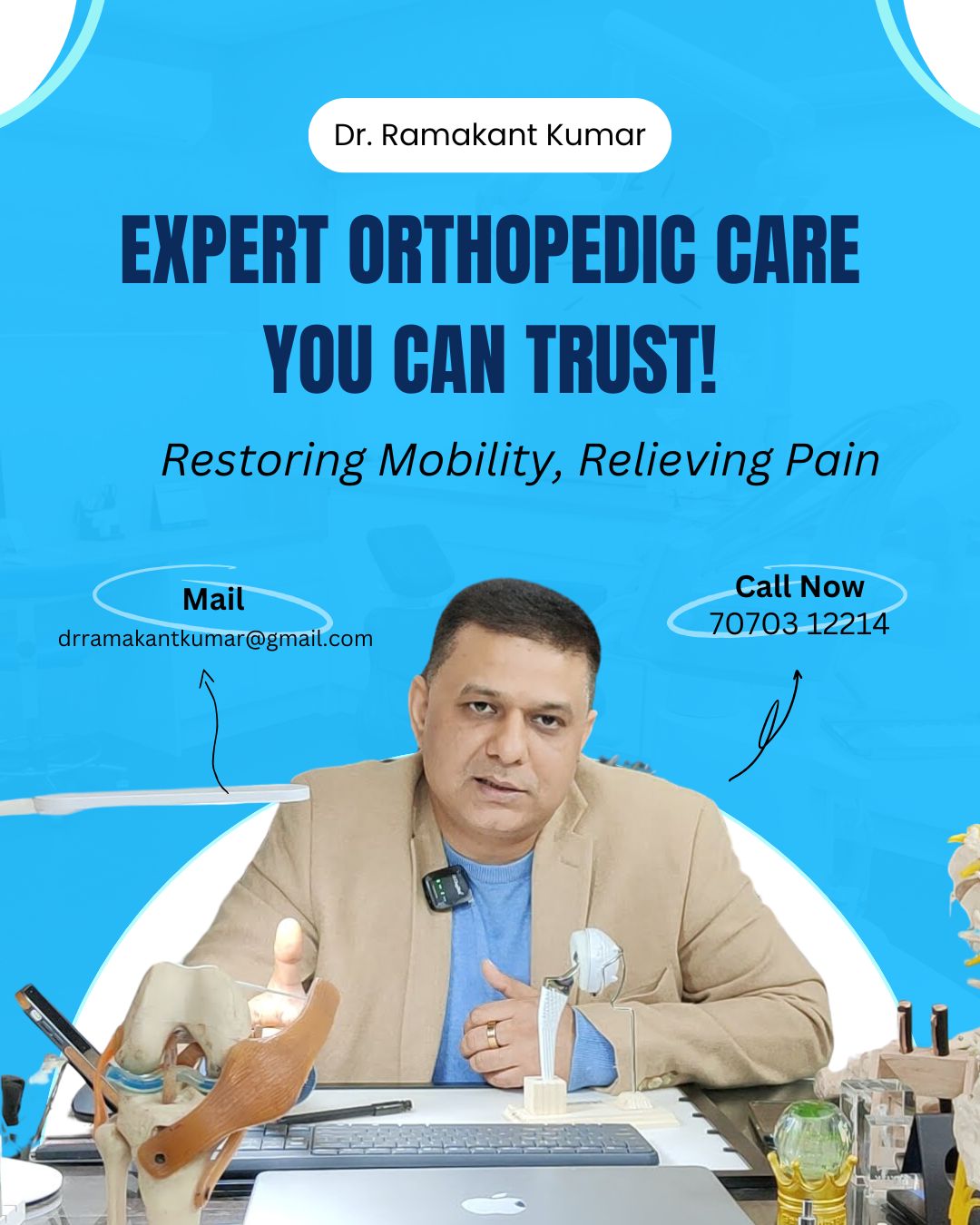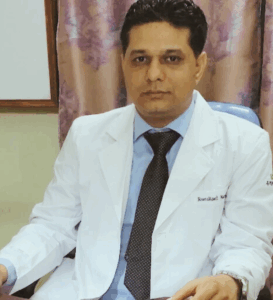Contents
Knee Pain is the most common complaint that affects people of all ages. Knee pain can be the result of an injury such as a rupture ligament or torn cartilage.
In addition to that, many medical conditions – including arthritis, gout, and infections can also be the Knee Pain Causes.
Knee pain can be localized to a specific area of the knee or can diffuse throughout the knee. Many types of minor knee pain respond well to self-care measures.
However, physical therapy, medications and knee braces can provide some knee pain relief but in most cases surgery is the last option. The surgery for Knee ranges from Arthroscopic Surgery to Total Knee Replacement Surgery.
However, the need for such surgery must be assisted by a Professional Orthopedic Surgeon like Dr. Ramakant Kumar, Best Doctor for Knee Joint Replacement in Patna.
This is because he is well versed in performing all the surgical procedures of knee with exceptionally low rate of complications and high patient satisfaction score.
Knee Pain Symptoms Checker
The severity and location of the knee pain vary, depending on the cause and condition of the problem. However, some common signs and symptoms that sometime accompany knee pain include:
- Swelling and stiffness
- Redness and warmth to the touch
- Sudden Knee Pain along with Weakness or instability
- Popping or crunching noises
- Inability to fully straighten the knee
- Knee Pain When Walking, climbing stairs up and down and bending
Knee Pain Causes
Many people experience knee pain as a result of injury or accident. This knee pain rarely goes away without treatment, and it isn’t always attributable to one incident. It’s most often a result of several causes or conditions such as physical condition or diseases.
But some Knee pain can’t be treated without undergoing a surgery. Generally, these Knee Pain Causes includes:
- Osteoarthritis – pain, inflammation, and joint destruction caused by degeneration and deterioration of the joint.
- Tendinitis – Knee Pain When Bending, walking up and down, or taking stairs become worse
- Bursitis – inflammation caused by repeated overuse or injury of the knee
- Chondromalacia Patella – damaged cartilage under the kneecap
- Gout – arthritis caused by the build-up of uric acid
- Baker’s Cyst – a build-up of synovial fluid behind the knee
- Rheumatoid Arthritis (RA) – a chronic autoimmune inflammatory disorder that causes painful swelling
- Dislocation – a dislocation of the kneecap most often the result of trauma
- Meniscus Tear – a rupture in one or more of the cartilage in the knee
- Torn Ligament – tear in one of the four ligaments in the knees – the most commonly injured ligament is the Anterior Cruciate Ligament (ACL)
- Bone Tumors – that most commonly occurs in the knees
Knee Pain Diagnosis
During the physical exam, the orthopaedic surgeon is likely to:
- Inspect the knee for swelling, pain, tenderness, warmth and visible bruising
- Check to see how far one can move his/her lower leg in different directions
- Push on or pull the joint to evaluate the integrity of the structure in the knee
However, in some cases the doctor might suggest tests such as:
- X-rays – as it helps to detect bone fracture and degenerative joint disease
- Computerized Tomography (CT) Scan – this can help diagnose bone problems and subtle fractures.
- Ultrasound – this uses sound waves to produce real-time images of the soft tissue structures within and around the knees.
- Magnetic Resonance Imaging (MRI) – this uses radio waves and a powerful magnet to create 3D images of inside knee.
Knee Pain Treatment
Knee pain can be evaluated and treated by a primary care doctor. If the knee pain requires surgery or the cause of the pain needs further evaluation, an orthopaedic surgeon will usually be consulted.
Treatment for the Knee Pain Causes are as varied as the condition that can cause the pain.
Knee Pain Medicine
Doctors might prescribe medication for pain relief to treat an underlying medical condition. If anyone is taking over-the-counter anti-inflammatory pain medications regularly for knee pain, then he/she must see their doctor to evaluate the condition.
Physical Therapy
Sometimes Physical therapy sessions can help to strengthen the muscles around the knees and make it more stable for the mechanical movements. Therefore, doctors might recommend to work with a physical therapist as it help to avoid injuries or further worsening of an injury.
Injections
Injecting medications directly into the knee might help in certain situations. But they usually need to be repeated every few months. Certain lubricants are also injected to the knee join that can help with movement and pain.
Furthermore, when these treatment option doesn’t provide relief from pain then surgical option is recommended. The surgery is usually done by an Orthopedic Surgeons.
Knee Surgery ranges from Arthroscopic Knee surgery to Total Knee Replacement Surgery.
Dr. Ramakant Kumar – Best Orthopedic Doctor in Patna
Being the Best Total Knee Replacement Doctor in Patna, Dr. Ramakant Kumar is specialized in performing various Knee-related surgeries in Patna. He has also successfully introduced and integrated new advancements in the treatment of Knee surgeries.
In addition to that, he has done many international fellowships in minimally invasive Joint Replacement Surgeries and Knee Arthroscopy. His clinic Quality Ratings are also excellent among-st the others Orthopaedic Surgery Specialists in Patna.
So, if you are residing near Boring Road and looking for Best Knee Replacement Doctor Patna, then you must consult Dr. Ramakant Kumar………
We hope that you find this blog for Knee Pain Causes, its symptoms and treatments informative. Till then, Stay Tuned, as we will be back with more such informative blogs……….




